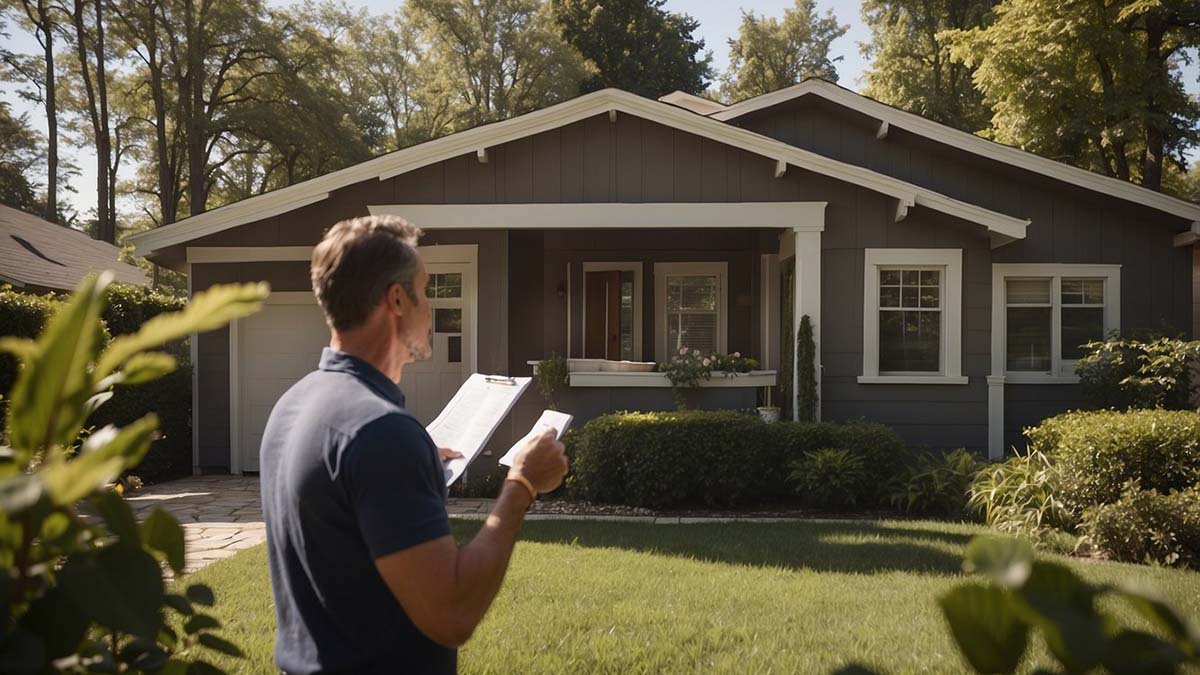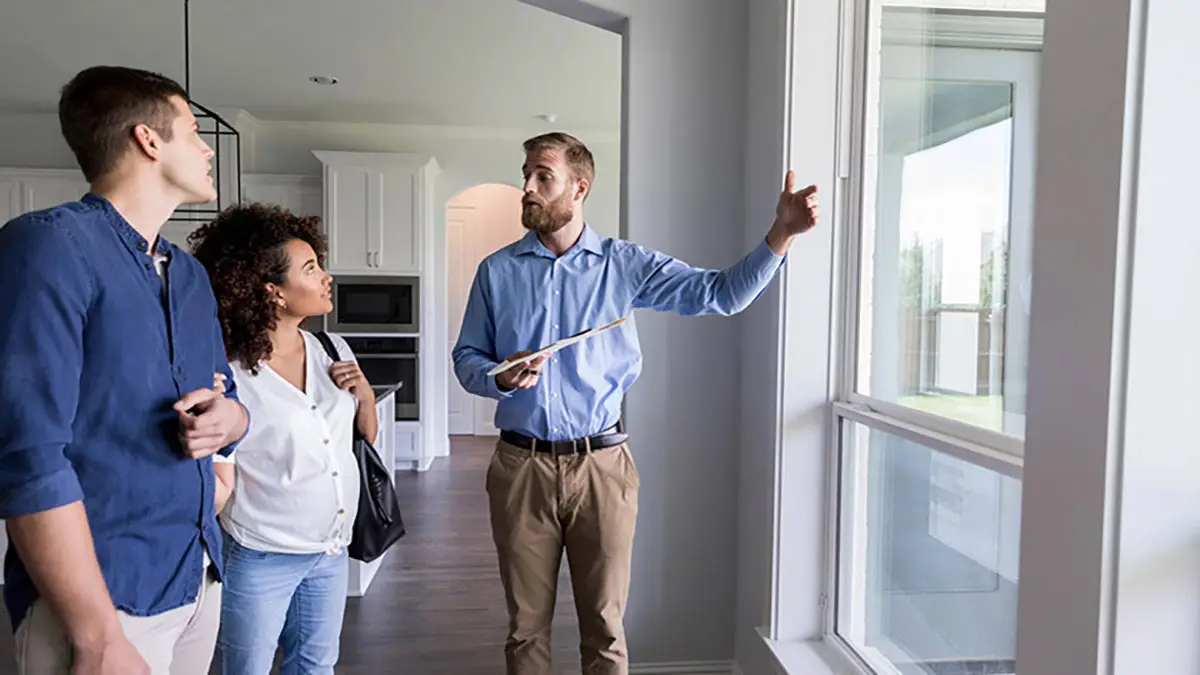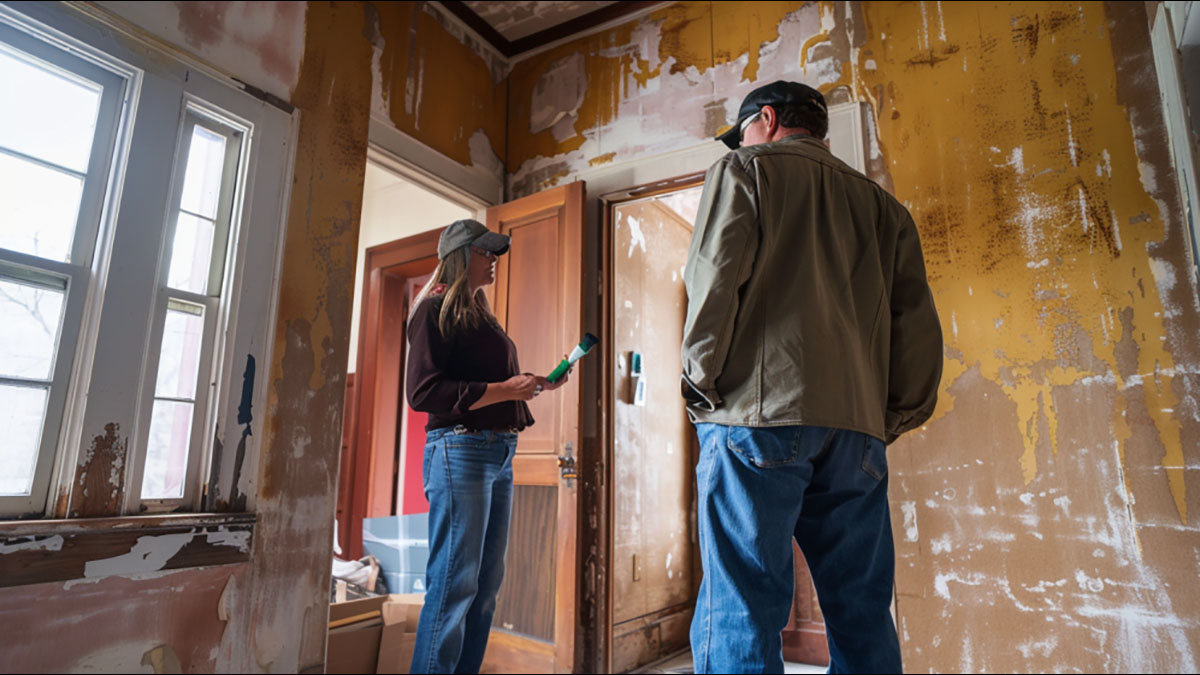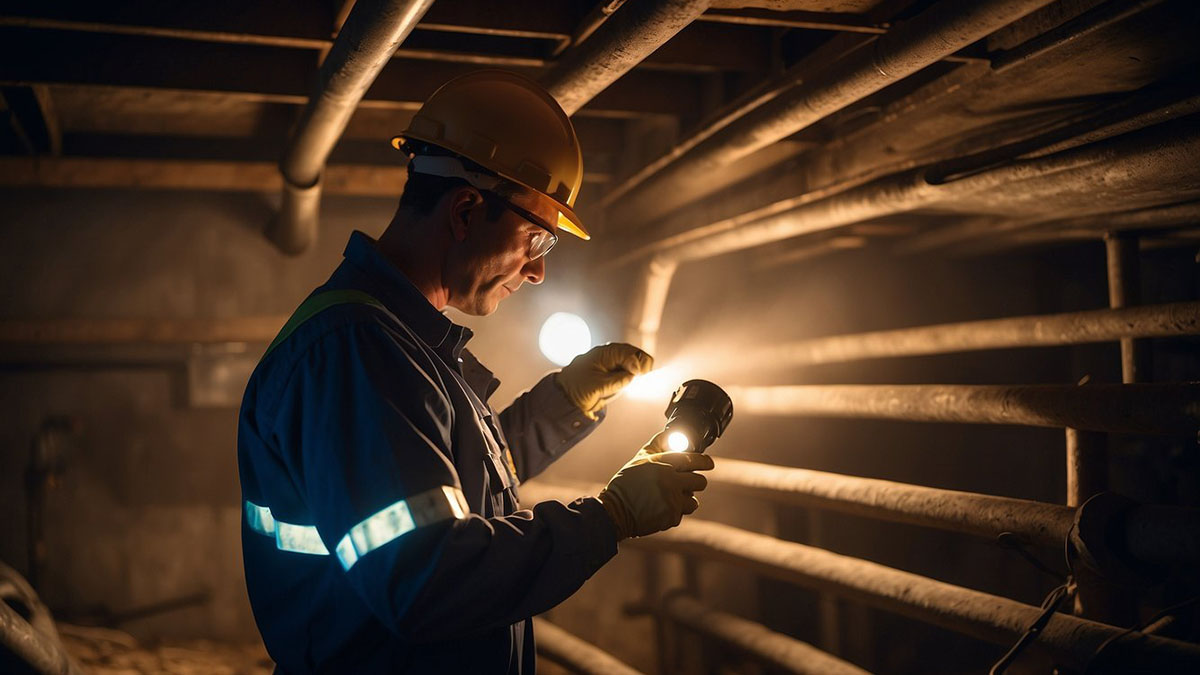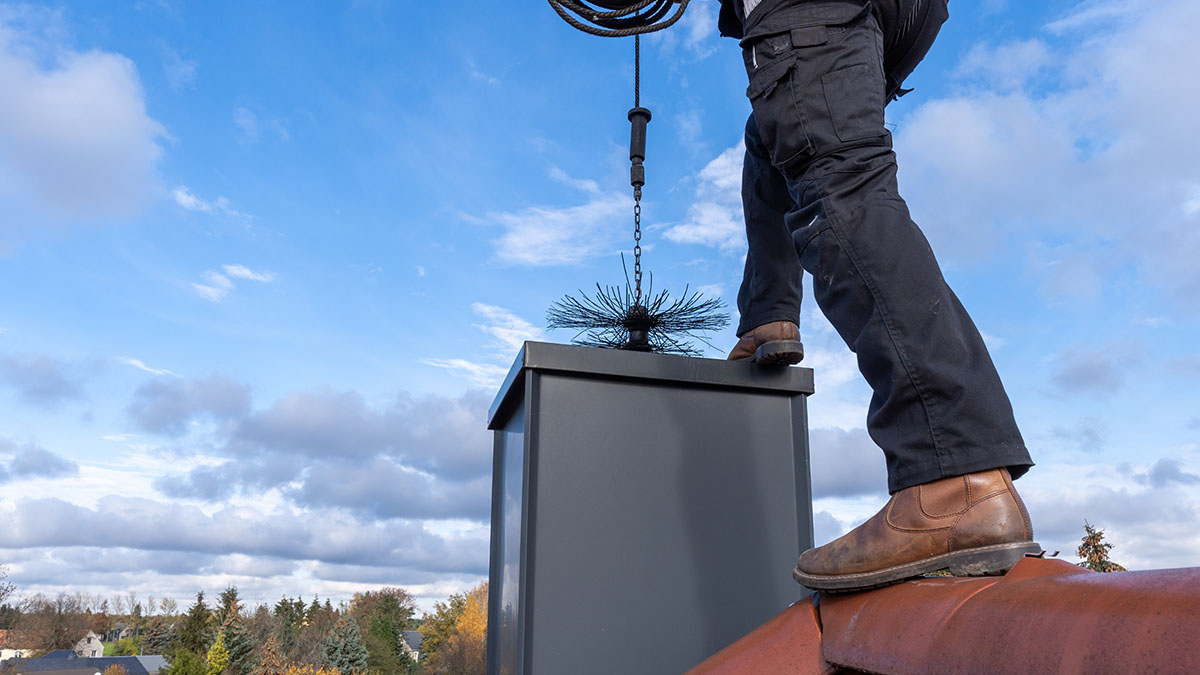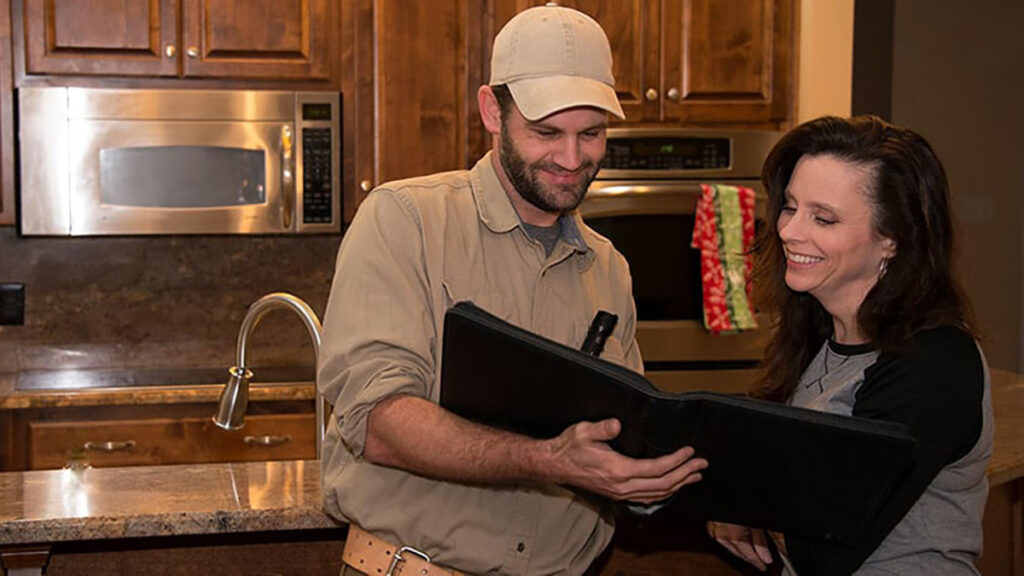
Questions to ask a home inspector are essential for prospective home buyers looking to make an informed decision when purchasing a property. Researching and asking pertinent questions will help protect their investment and save time and money in the long run. Knowing the right questions to ask a home inspector can provide peace of mind when making such a major purchase.
If you’re buying a house, you should hire a professional home inspector to examine the property so they can come back and describe its condition in their detailed report. ASHI and InterNACHI certified inspectors have a detailed list of criteria in the Standards of Practice that should highlight any potential major issues with the property that require repair.
While you don’t need to be present for the home inspection, it’s highly advised that potential buyers attend their inspection so you can ask important questions and get good luck with your potential future home.
You should ask a potential home inspector about their credentials before hiring. After the inspection, essential questions to ask a home inspector about the condition of the structure and the central systems, including the electrical, plumbing, mechanical, and roof. You should also ask if there is evidence of water damage and any potential fire/safety hazards around the home.
A home is one of the most significant investments you’ll ever make, so you must get it right. However, there will likely be a million and one questions running through your head during the inspection, and it can become a little overwhelming for some people. You will be investing significant money into this, making it hard to think objectively about what you see around the house.
In this article, we bring 25 of the most important questions to ask a home inspector to ensure you’ve got all the bases covered and are buying the home with your eyes wide open. Let’s get into it.
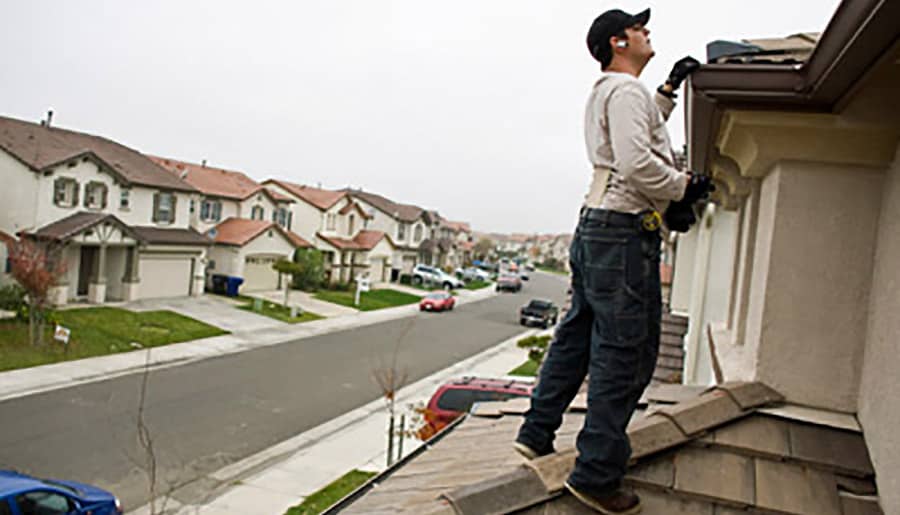
1. What is Your Experience as a Home Inspector?
This question is important to establish the inspector’s background and experience level in the field. You want to know if they have inspected homes similar to the one you are considering purchasing and how long they have been doing it.
It’s also good to know if they are certified by a professional organization, such as the American Society of Home Inspectors (ASHI), or their training is through an apprenticeship program.
In addition to knowing how much experience the professional inspector has in home inspections, you should also inquire about any specialties they may have. For example, they might specialize in certain areas of a home inspection, such as plumbing or electrical.
Learning about the inspector’s process and what is included in their inspection report is also important. Ask the following questions about how long the inspection will take, what documents or photos will be provided after the inspection, and who can view the results. You should also inquire about their home inspection costs.
Finally, reading inspector reviews online is a good idea to understand what other people think about their services. Doing your due diligence upfront can help you choose the right home inspector for your needs. Doing so can help you avoid costly surprises regarding repairs, renovations, and other potential issues arising from a home inspection.
2. Are you Licensed or Certified?
It’s important to hire a good home inspector. But how can you find a qualified home inspector?
It’s hard to believe, but some states still do not have licensing procedures in place for home inspectors. However, there are still certifying organizations to help train home inspectors.
Most states issue a home inspector license after the inspector undergoes training and passes the National Home Inspector Examination or an equivalent state home inspector test. Your home inspector must be licensed or working under the direction of a licensed home inspector.
Do your homework. Research the qualifications and experience of any home inspector you’re considering hiring. Check out online reviews, ask friends or your real estate agent for recommendations, and look for certifications from reputable organizations such as the American Society of Home Inspectors (ASHI) or the International Association of Certified Home Inspectors (InterNACHI).
Ideally, your home inspector will be certified and accredited by either ASHI or NACHI. These are the top two home inspection certification organizations in the US. As of this writing, NACHI has over 26,000 certified home inspectors in the US alone and is the largest of its kind in the world.
You want someone who knows home inspection red flags when they see one, so don’t be afraid to ask them how long they have been a home inspector and if they are familiar with properties of this kind in this area.
Certified Master Inspectors (CMIs)® are considered the best inspectors in the world. CMI® is a professional designation available to all qualifying home inspectors who wish to become Board-Certified by the Master Inspector Certification Board. All CMIs® have a minimum of 3 years of experience, are dedicated to continuing education, and have performed a minimum of 1000 fee-based home inspections.
3. What Does the Home Inspection Include?
Next, you want to know what a professional home inspection covers and does not. The home inspector should give you a quick rundown of the checklists and the upcoming property tour that way. You can prepare yourself with any questions regarding a particular house feature.
Home inspections are very subjective, and much of what is inspected depends on the individual home inspector’s experience. Home inspectors come into the business with various backgrounds that shape how they inspect.
Here is a list of common backgrounds for home inspectors:
- General contractors
- Tradesmen such as electricians, plumbers, HVAC technicians
- Residential builders
- Code enforcement inspectors
- Law enforcement
- Fireman
- Insurance adjusters
- Pest control
This also allows you to see any omissions in the home inspection that you may want to be assessed. If there are, you must hire an expert to conduct a specific examination.
Reading the Standards of Practice for your home inspectors’ relevant accreditation is worthwhile so you can see the details beforehand. These are a set of minimum inspection standards. However, many inspectors will go beyond these standards. Here is a link to them below:
In general, a thorough inspection includes:
- Roof – including coverings, visible flashings, chimneys, and gutter systems
- Exterior – including siding, doors, windows, and trim
- Structure – including basement, crawlspaces & framing structure
- Heating & Cooling Systems – including systems and ductwork
- Plumbing – including plumbing pipes and plumbing fixtures
- Electrical – including panels, outlets, switches, and visible wiring
- Fireplace – including fireboxes, cleanouts, damper doors, and gas inserts
- attic, Insulation & Ventilation – accessible attic spaces, insulation, and ventilation sources
- Doors, Windows & Interior – including doors, operation of windows, and interior wall, floor, and ceiling conditions
In our Complete Guide: What a Home Inspection Does & Doesn’t Include, we look at these items and many more details to understand the home inspection process.
4. What Type of Inspection Report Do I Receive?
It’s important to know what to expect from the inspection report, including how it will be presented (e.g. paper or digital) and how detailed it will be. Ask the inspector to describe their reporting style and how they document their findings.
Be sure to ask how easy it is to read their report if they provide detailed explanations of problems found and any other questions you may have. Knowing what to expect from the inspection report will help you make an informed decision about the property.
Ensure you are comfortable with the inspector’s reporting style before making your final choice. It’s also beneficial to ask for a sample report from the inspector to understand its appearance. This allows you to become familiar with their reporting style and understand the level of detail provided in the sample inspection report.
5. Do You Have Liability and E&O Insurance?
A home inspector should carry insurance to protect their business from liability. It is important for the inspector to have general liability insurance and professional indemnity insurance, as well as other coverages depending on what services they provide.
These coverages can help protect them financially should a claim arise from any negligence or errors in their work.
6. How Long Will the Inspection Take?
A home inspection will often take between 2 to 4 hours. It is important to remember that the inspection can take more or less time depending on the size and condition of the home.
The inspector will examine all major components, including the roof, exterior, structure, plumbing, electrical, heating and cooling systems, interior finishes, and insulation. The inspector may also look for signs of pests or animal damage.
The time it takes to complete an inspection often reflects the house’s condition and size. A home inspection for a property in good condition typically takes about 2 to 3 hours, while a more complex structure can take 4 or more hours.
A new inspector will likely take longer as they inspect the home to avoid errors.
It is important to remember that if any problems are discovered during the process, they may take longer than originally estimated.
7. Do I Need to be Present for the Inspection?
That’s ultimately up to you. Being present for the home inspection is a good idea, especially for first-time home buyers. That way, you can ask questions and better understand any issues. The inspector will also be able to explain any necessary repairs or replacements in greater detail if you are there.
Plus, it’s a great opportunity to learn more about your property so you can make informed decisions going forward. You’ll get a better understanding of how your home functions and be able to make better decisions in the future.
8. Do You Inspect for Mold, Radon, Asbestos, or Lead Paint?
While a standard home inspection doesn’t include checking for radon gas, mold, asbestos, or lead paint, many home inspectors offer specialty inspections that can identify these and other environmental hazards.
Specialty inspections, like radon testing, will cost more, but it’s important to consider them for your peace of mind about the health and safety of your home or potential home purchase. Hiring a certified specialist to conduct testing separately if you suspect any of these issues is also possible.
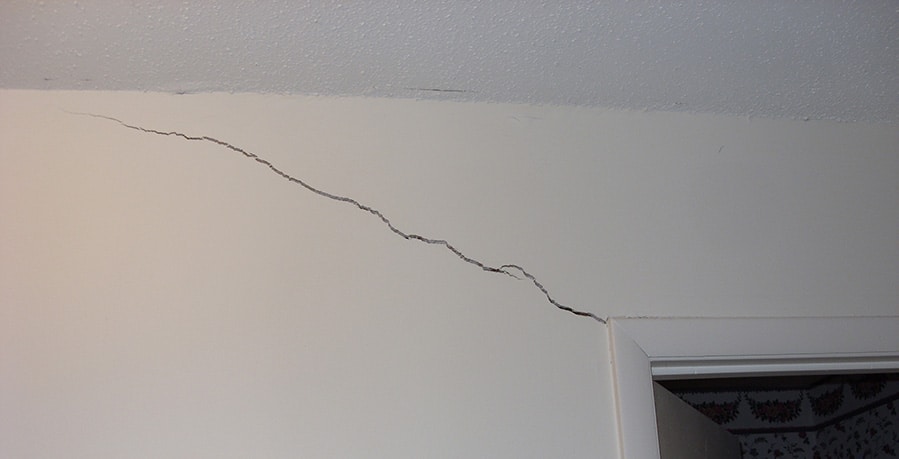
9. Are There Major Structural or Foundation Issues?
The structural integrity of the building is by far one of the most important aspects when assessing your future home. This is the skeleton of the entire house. It’s one of the main things determining its overall safety and potential future value.
Fortunately, the home inspector will closely examine the structural components to look for foundation issues, but double-checking doesn’t hurt.
Here’s a quick home inspection checklist for you. If you see any of these issues, make sure you point them out to the inspector and ask them for their opinion on it:
- Cracks in the walls
- Uneven flooring
- Windows and doors that don’t shut or fit properly
- Issues with the foundations
- Misaligned porch of front steps leading to the property
- Gaps in the mortar and brickwork
Strictly speaking, the home inspector should not draw judgments or lend their personal opinion on the property. However, if you spend a few hours with the inspector, you may understand how the inspector feels about a certain condition.
It’s safe to assume that anything concerning the foundation, structural components, or old systems will rank high on a home inspector’s list of major concerns. As I stated earlier, it’s only a major concern if the seller isn’t willing to fix it. So don’t overly stress the findings just yet.
10. What’s the Condition of the Roof?
The roof is one of the house’s most essential features, protecting the entire home from outdoor weather conditions, water penetration, and the intrusion of pests and animals. Generally, a shingle roof lasts 20 and 30 years as long as it is installed correctly.
Home inspectors will typically walk the roof if it’s safe. However, some conditions make it unsafe to do so.
Of course, this all depends on where the house is located, the weather conditions it’s subjected to, and whether or not the owner has been conducting regular maintenance such as cleaning the gutters, removing moss and mold from the shingles, repairing roof flashings, and re-caulking when needed.
Technically, the home inspector is not obligated to comment or draw judgments on the potential longevity of the roof. That said, most home inspectors have seen their fair share of roofs, so you may be able to get some additional information. The problem with speculating longevity is that no one can predict future conditions.
Our article Common Roof Problems Found During Home Inspections addresses many common roofing problems.
11. Are There Signs of Water Damage or Leaks?
Your home inspector will look for any signs of water damage throughout the house during the inspection. However, it’s still important to ask the inspector this question at the end, so you can fully understand the house you’re considering buying.
Water penetrating the building can wreak havoc in various ways, so you must understand if the house has a history of water damage. Here are a few things you can look out for yourself:
- A strange musty smell throughout the house
- Visible mold and mildew
- Dripping sounds inside walls
- Water stains on the walls, ceilings, or floors
If your home inspector finds a chronic wet crawl space, he may recommend an encapsulation system. Encapsulation seals the crawl space, turning it into a mini basement with a commercial-grade dehumidifier system installed.
12. What’s the Condition of the Plumbing?
Installing new plumbing systems in the house costs around $4.50 per square foot. Depending on the size of the home, this could rack up fees of $5000 or more to replumb a house. Plumbing failures are why it’s important to double-check with the home inspector about the condition and age of the plumbing system in the house.
Over the years, plumbing practices have changed considerably. If you built the home you’re looking to buy pre-1995, there is a chance it’s still using some form of outdated piping, such as galvanized pipes or polybutylene. It’s worth asking the inspector to ensure no major plumbing issues and that all piping and plumbing appliances are in good working order.
13. How’s the Electrical System in the Home?
The home inspector will assess the electrical system around the house as per their Standards of Practice. However, asking a few extra questions on the matter doesn’t hurt. Your home inspector should remove the electric panel cover, provided it’s safe.
There are over 50,000 home electrical fires in the USA each year. These fires account for around 5000 deaths and a little over $1 billion in property damage.
Most of the time, these fires result from inadequate and unsafe electrical systems around the house. If you spot anything that doesn’t look right or looks like shoddy DIY work, ask the inspector what they think.
Like the point raised around plumbing, homes built pre-1980 could have outdated wirings such as:
- aluminum wiring
- ungrounded wiring
- knob and tube wiring
Our article Common Electrical Problems Found During Home Inspections addresses the common electrical problems in houses.
14. What is the Condition of the HVAC System?
The heating and cooling system regulates the indoor air temperature and humidity levels around the home, making living comfortable for you and your family.
However, that’s not all. The HVAC system also controls indoor air quality by filtering out pollutants, allergens, and other harmful particles from our air. The ducts are essential to the overall heating and cooling system. You’ll likely want to know if the ducts are in good condition and adequately maintained.
Ask the home inspector to show you how to operate the system. This is especially important If you’re unfamiliar with the heating and cooling system. Many people have never had one in their home before, or they’re relocating to a new part of the states with more extreme weather conditions than they are accustomed to.
15. Does the House Need to be “Brought up to Code?”
Most homeowners have heard of code violations but don’t understand them. Building codes change every few years as more information becomes available, materials evolve, and technology advances. If you live in a home, chances are the house doesn’t meet current building codes. Allow me to explain further.
Building code enforcement only affects new home construction and renovated homes under a building permit. Cosmetic renovations do not require a building permit in most areas. Once a home has been given a certificate of occupancy, it’s considered grandfathered and must only be updated if it is being renovated. That’s not to say the house shouldn’t be updated, only that it doesn’t have to be.
While home inspectors are familiar with building codes, they possess no legal authority to enforce them. It’s worth asking the inspector about potential violations of these codes in the home you want to buy to negotiate its repair with the owner. Ask if the home meets the following codes:
- National Electrical Code (NEC)
- National Fire Protection Association (NFPA)
- Uniform Plumbing Code (UPC)
In most states, the homeowner is still permitted to sell the property even if it does not meet the current building code. However, this gives you a prime opportunity to negotiate using this as leverage.
16. Are there any Pests or Insect Infestations?
Pests and termites cause billions of dollars worth of property damage each year in the USA alone, so it is worth your time to ask the inspector if they’ve spotted any evidence of pests throughout the house.
Termites, and other wood-destroying organisms, can severely compromise the structure of a home. Ask the homeowners if the house is under a termite contract and has been checked annually.
There is a big difference between a termite contract and a pest control contract. Pest control contracts only cover roaches, ants, spiders, and other insects and must be sprayed every 90 days.
Termite treatments are good for up to 10 years and require a termite inspection annually. Termite treatments cost significantly more than standard pest control. Termite treatment can cost $450 – $2,000 for chemical treatment of a 2,500-square-foot house, according to Fixr.com.
17. Is this a Cosmetic Defect?
While home inspectors have an eye for details, they should be big-picture thinkers. A home inspector is looking for issues that affect the structural integrity of the home and the operation of the systems inside it.
It’s not the home inspector’s job to pick up every single issue with the house. Some potential problems you come across will be purely cosmetic and will not affect the house’s functionality or value.
Cosmetics are generally considered matters of taste, but they can also be related to the overall age of the home itself. I usually tell my clients I’m not necessarily looking for things you can see. I’m looking for the things you can’t see or don’t know to even look for.
It doesn’t hurt to ask if you’re unsure at any point during the residential inspection.
18. Does the Property Have Good Drainage?
When you first arrive at the property, the inspector will assess and examine the exterior to identify issues with the brickwork, structure, and driveways.
However, one of the most common issues on home inspection reports is poor drainage and improper landscape grading immediately surrounding the house. Ensure you double-check to ask the inspector what the drainage is like around the property and if they are happy with the gradient.
Suppose the house has a negative gradient and poor overall drainage. In that case, there is a strong chance you will subject the basement or crawl space to water penetration, which will cause significant water damage to the foundations and the house’s structural integrity.
19. Has the Home been Updated?
Particularly important when buying old houses, you should know whether or not any significant renovations have taken place in the home. If they have, the home inspector should pay close attention to these areas for any signs of DIY errors that could cost you money to repair in the future.
In older homes, most people only fix things when they break. We see a lot of improper DIY work performed over the years, especially in structure repairs, plumbing, and electrical systems.
You may also want to ask the homeowner why they conducted the modifications/renovations in the first place and who performed the work. Chances are, they may not have all the paperwork. However, some paperwork is better than none.
20. Do I Need to Call in an Expert?
If a home inspector finds a condition beyond its typical useful life or is defective, they will often refer you to have a licensed contractor examine it. Just because a system is old doesn’t necessarily make it wrong.
However, if you suspect that there may be some significant damage to one or more of the home features, you should ask the inspector if they could recommend a relevant expert.
For example, suppose you believe that the building has significant structural issues. In that case, you should hire the services of a qualified structural engineer who will come and assess this in much greater detail.
Likewise, suppose several DIY electrical defects are present, and the majority of the electrical system in the house is older. In that case, the home inspector will likely recommend the defects be repaired, and a licensed electrician will thoroughly examine the entire electrical system.
21. Are There Any Fire Hazards or Safety Issues?
If you’re looking for a new place to live, one of the things on your priority list should be safety. You should ask the home inspector if they believe there are any major safety issues around the home so you can make an informed decision on whether or not you still want to move. Here are a few things you can ask the inspector.
- Are there a sufficient number of smoke detectors?
- Are there any carbon monoxide detectors present?
- Is there any evidence of lead-based paint being used?
- Is there any asbestos around the home?
- Do you know if there are reports of radon leaks in the area?
- Are there any potential electrical hazards?
- Are there any mold issues present?
- Did you spot any significant trip or falling hazards?
22. Will Nearby Trees Cause Problems Later?
One often overlooked issue during a home inspection is the problems that nearby trees and plants can cause. According to the standards of practice, all trees should be at least 8 to 10 feet away from the property to don’t cause damage to the roof or the home’s structure.
Tree limbs that get too close to the house can damage the roof or siding later. Trees planted too close to the home can influence the foundation as the tree grows. Removing trees before they become a problem is a wise choice.
If you see any trees nearby, ask the home inspector for their opinion on whether or not they will cause a problem in the future.
23. Are any of Your Findings a Deal Breaker?
Here’s a tip for you. Before you go on the home inspection, write down a complete list of deal-breaker scenarios you have in mind. Deal breakers should be anything you consider a significant red flag that will cause you to think twice about buying the house.
At the end of the inspection, show this list to your home inspector to inform you if any major problems crop up.
We urge you to keep an open mind regarding your home inspector’s findings. For every problem, there’s also a solution. A home inspection deal breaker only exists if you and the seller can’t agree on handling the repairs.
You also have to consider whether or not the house is priced for its current condition. For example, if new construction homes in your area sell for $200 per square foot but you can buy an older home for $100 per square foot, it’s safe to assume some issues must be addressed, but the house is priced accordingly.
I tell clients that if they are comfortable handling the repairs, even if the seller refuses to, I see no reason why they shouldn’t buy this home.
24. Would You Buy the Property?
Here’s another sneaky question you might not get away with, but it’s always worth asking. Home inspectors should not provide a buying decision no matter how the question is phrased.
I tell clients I can’t speak for them because I don’t know their financial position. However, if you are comfortable with the findings and like the house, I see no reason you shouldn’t buy it provided the appraisal aligns with the selling price. Ultimately that’s your decision, and right now, you don’t have enough information to make that decision.
25. If you’re unsure about anything, ask.
Finally, you should always ask if you’re unsure about anything during the home inspection or afterward.
There will be a lot to take in on the inspection day. Thousands of thoughts will run through your head as you walk around the house, and it will be hard to fire off all the questions you need to in that time.
The best advice is to prepare well for the inspection, write down any questions you want, and ensure you’re taking notes throughout the day.
I’d suggest holding your questions until the end to allow the home inspector to complete his work. Home inspectors have a routine they use to inspect. Asking questions as the inspector lengthens how long the inspection takes could distract the home inspector, causing them to miss more critical items.
When to Walk Away After a Home Inspection?
The decision to walk away after a home inspection is a personal one. However, certain signs may indicate that moving on and considering another property would be wise.
If the inspection findings reveal major structural damage, such as foundation problems or roofing issues, then it is likely best to look for another property. Dealing with these problems can be costly and not worth the purchase price.
In addition, if the repair cost exceeds your budget or the seller isn’t willing to negotiate repairs, it would also be wise to walk away. It can be difficult for homeowners to come up with additional money beyond the purchase price to make the necessary repairs.
Finally, if you find any evidence of mold or pests during the home inspection process, then this could also be a sign to walk away. These issues can be tricky and costly to deal with and could cost more than you originally anticipated.


